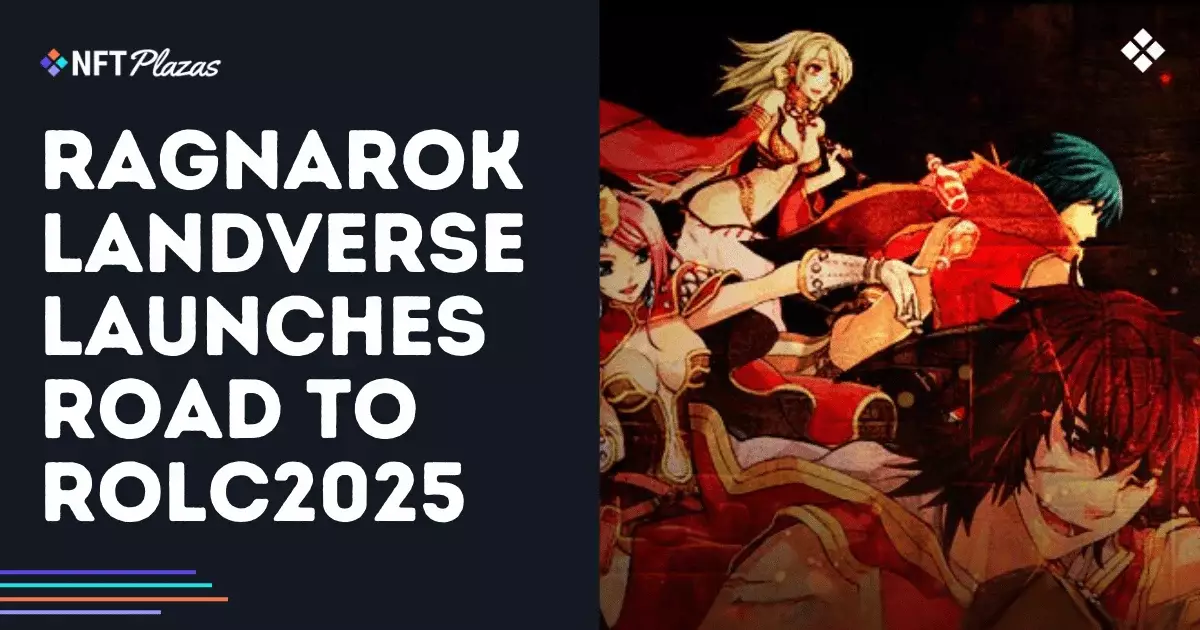The landscape of online gaming has witnessed a radical shift over the past few years, particularly with the advent of blockchain technology and NFTs. However, the upcoming Ragnarok Landverse Championship (ROLC) 2025, marked by its “Road to ROLC2025,” is not just another gaming event; it represents a definitive turning point for guild-based competition in NFT gaming. In what could be a game-changer for the genre, this championship adopts a league format that promises to engage players and organizations in unprecedented ways.
A New Competitive Framework
The hallmark of ROLC2025 is its meticulously crafted two-season league system featuring a culmination in a Major Event. By implementing weekly “War of Emperium” (WoE) battles, the tournament allows guilds to not only strategize but also innovate. The tactical depth of gaming is often underappreciated, but this structured approach pushes teams to develop superior control tactics over key territories. It bridges the gap between casual players and seasoned professional teams, giving the former a platform to dynamically engage and excel.
More intriguingly, there is no solo participation; this is a guild-driven competition. This design makes it clear: the essence of successful gameplay lies in teamwork and strategy, with individual skill taking a backseat. Yet, while this focus on collectivism has its merits, it begs the question—does it limit the recognition of individual talent? Players who excel may find it frustrating to share accolades with their teams, which can lead to discontent among highly skilled individuals yearning for personal recognition.
Financial Stakes and Team Motivation
Is there a better way to incentivize competitive spirit than by dangling a prize pool of $30,000 for the first season? The tiered rewards—offering substantial sums to top teams—give guilds a financial incentive to participate actively. However, this financial model also has its pitfalls. When money is involved, not all teams will compete ethically. There’s a fine line between healthy competition and toxic rivalry that could lead to unfair practices or guilds prioritizing profit over sportsmanship.
While the game developers are certainly aiming for excellence through this tournament structure, they must also implement strict regulations to combat potential issues, which could mar the event’s reputation. It’s imperative that safeguards are reinforced to ensure all teams can compete without fear of underhanded tactics.
The Dynamics of Team Building and Recruitment
The call for guilds to participate is a double-edged sword. On one hand, it fosters community engagement, but on the other, it raises the barriers for entry. With competitive guild play at its core, potential players need to navigate a convoluted recruitment process through platforms like Discord. While this might cultivate a sense of belonging, it could also alienate newcomers who feel they lack the connections or knowledge to form or join an established guild.
The requirement for team registration can initially appear to be an inclusive move, but it’s arguably exclusionary for solo players. In a time when adaptive gameplay like solo queuing is gaining traction, restricting access to guilds only may stunt growth among casual gamers. If studios truly aspire to increase player engagement, they need to consider alternative formats that allow for individual or smaller group interaction, alongside guild competition.
Point Systems and Their Impact
The points-based system rewards guilds based on their performance during the planned Weekly Wars, creating an engaging, competitive atmosphere. However, the varying point values for different territories from season to season could lead to inconsistencies in strategy. While creating a dynamic gameplay experience, it also introduces the possibility of unfair advantages for guilds more adept at adapting to change. This puts pressure on teams to not just be skilled players but also innovative strategists, a combination not easily achieved.
However, it can be argued that this makes for exciting viewing for spectators—after all, who doesn’t love rooting for an underdog who managed to master an unexpected strategy?
The upcoming Ragnarok Landverse Championship 2025 undoubtedly marks a pivotal time for both competitive gaming and NFT technology. Though it does have its potential pitfalls, this tournament presents an ambitious vision for what guild-based play can achieve, further reinforcing the notion that the future of gaming might just be as thrilling as the games themselves.


Leave a Reply